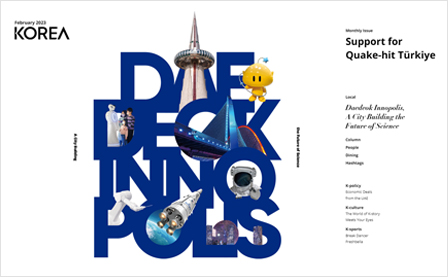June 2023

ESG Report
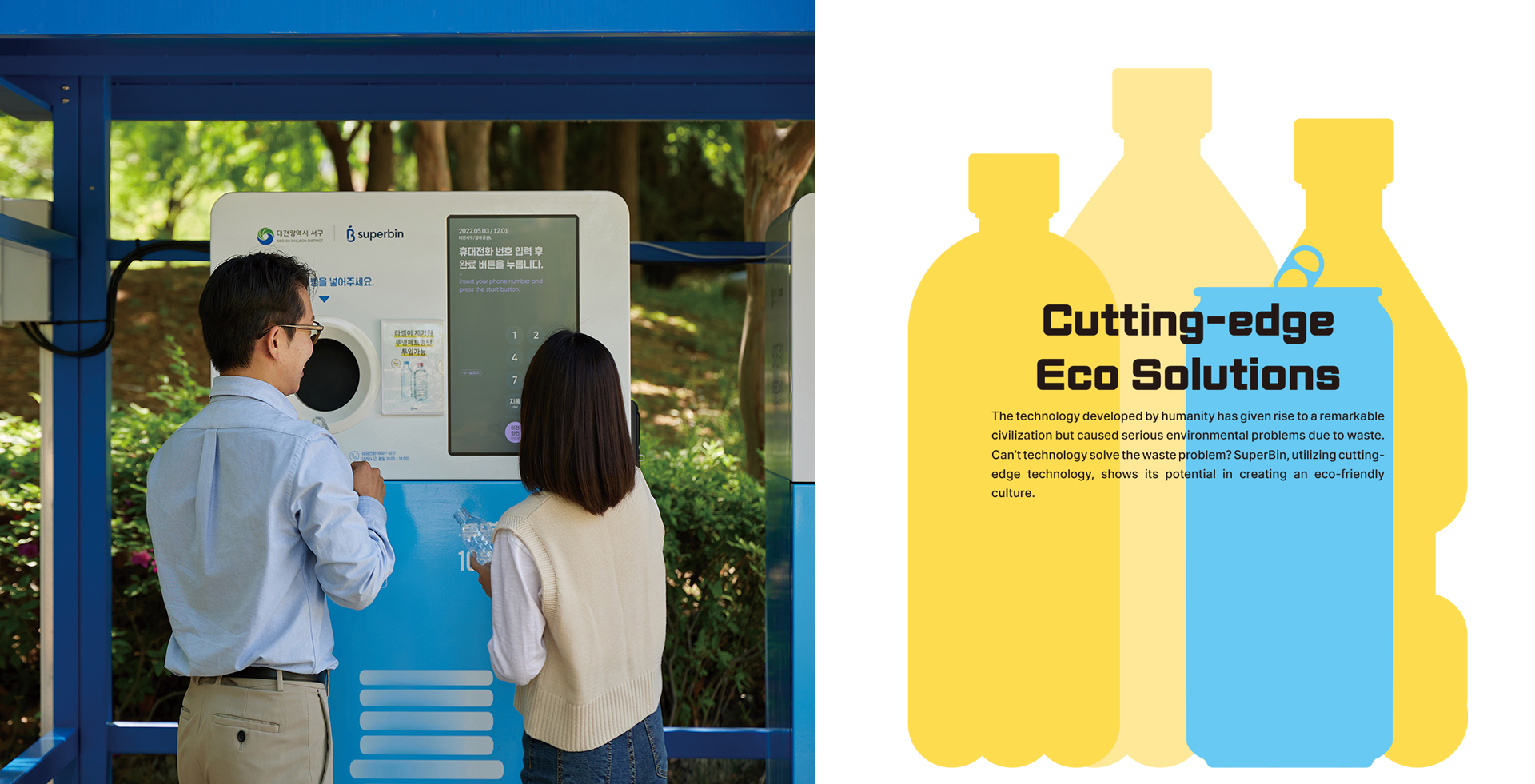
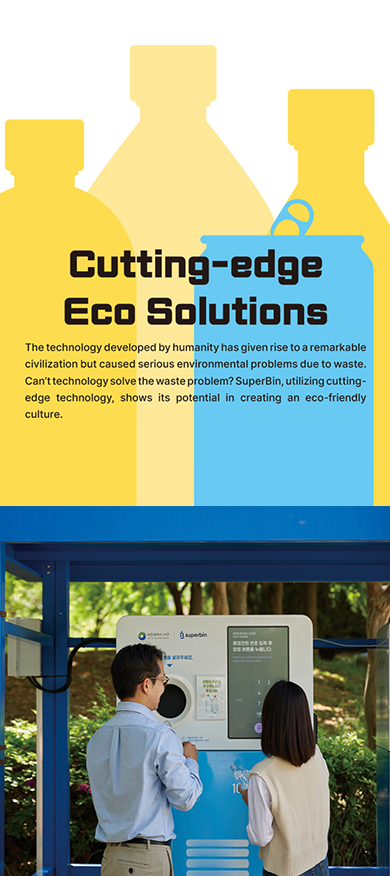
Photos Courtesy of SuperBin
SuperBin, a company waging war on garbage, aims to create an environmentally conscious culture for future generations, addressing mankind’s waste problem. By promoting cultural change and shifting perspectives, SuperBin leads the way with the slogan “Waste is your money. Recycling is playing.” armed with state-of-the-art technology.
SuperBin’s Weapons
The circular resource collection robot, “Nephron,” is a notable innovation by SuperBin. Equipped with AI technology and trained on waste image data, Nephron can determine the recyclability of items. Users simply deposit recyclable waste into the inlet, where the camera captures images and AI algorithms make recycling decisions. Selected resources are then compressed, collected and converted into points that users can redeem for cash.
SuperBin goes beyond mere collection and has created an extensive circular economy system supported by advanced technology. This includes a digital information-based screening and collection infrastructure utilizing Nephron, an IoT-enabled logistics infrastructure, and a smart factory-based processing materialization infrastructure.
In the logistics stage, IoT technology remotely monitors collection robots, optimizing logistics flow and preventing mixing and contamination with other waste. In the processing stage, imfactory, SuperBin’s smart factory, uses a recycling process to produce high-quality “r-PET Flake,” a renewable raw material with minimal carbon emissions. Through this high-tech cycle, waste is transformed into usable raw materials.
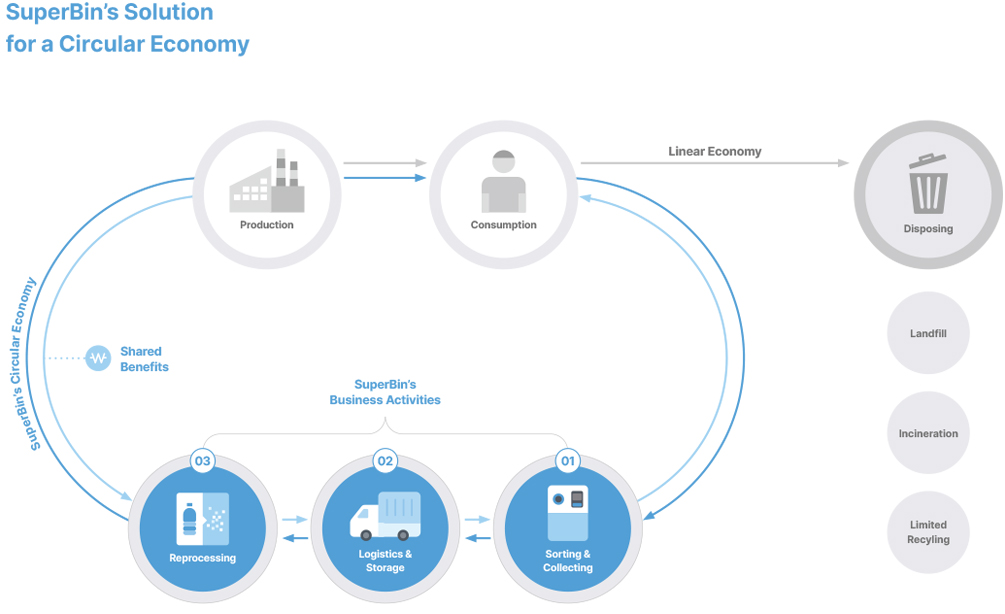
Transforming Waste into Value
SuperBin aims to establish a resource circulation system in the city, recognizing the importance of minimizing environmental damage beyond city boundaries. However, achieving this goal relies on the cooperation and understanding of city residents, alongside advanced technology to create a sustainable loop. To garner support, SuperBin emphasizes compensation and raising awareness among residents.
Sharing economic benefits with residents is the first key to creating a sustainable, eco-friendly culture, according to SuperBin. CEO Kim Jeong-bin highlights the background, stating that waste recycling is an area where the market economy often fails. To address this, SuperBin aims to bring innovation to these markets, creating a successful example that operates on a market economy basis rather than relying solely on public funds or subsidies.
SuperBin provides immediate and direct compensation to users through Nephron, while also offering indirect compensation by transforming their factories into cultural spaces. Factories, often seen as undesirable NIMBY infrastructure, have been adorned with a forest environment, eliminating the negative perception of waste facilities. These spaces are now freely accessible to residents and also serve as temporary shelters for abandoned dogs, fostering an environment where diverse lives can coexist.
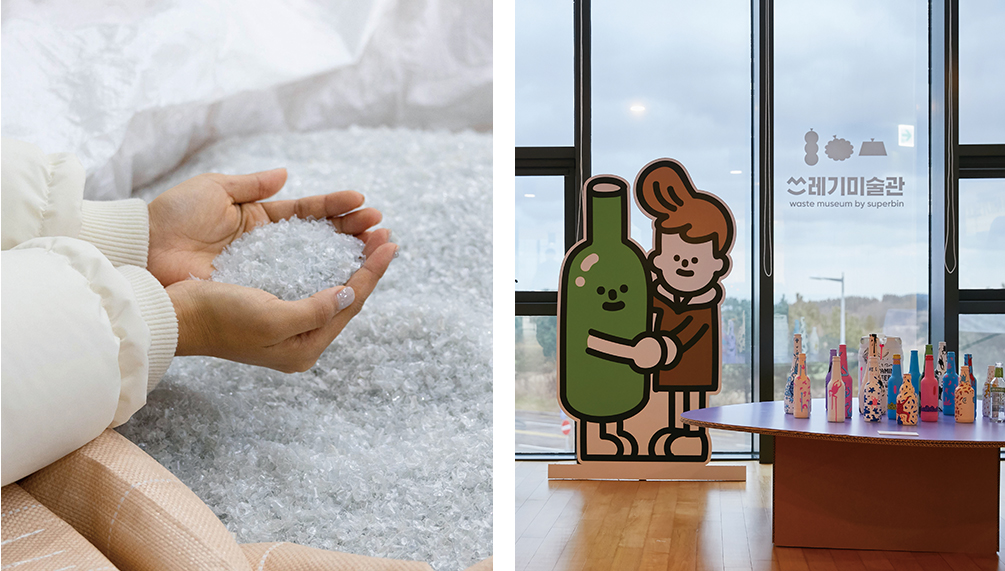 r-PET Flake produced at imfactory operated by SuperBin (left). A ’Waste Museum’ interprets environmental problems through art and transforms garbage into art. (right).
r-PET Flake produced at imfactory operated by SuperBin (left). A ’Waste Museum’ interprets environmental problems through art and transforms garbage into art. (right).Cultivating Culture
While compensation serves as an immediate incentive, SuperBin recognizes that a fundamental shift in perception is the sustainable driving force. To establish eco-friendliness as a valuable new culture, SuperBin is actively changing people’s perception of garbage through diverse cultural and educational content.
“SuperBin Rookie” and “SuperCube” are notable examples of this approach. “SuperBin Rookie” is a school service designed to cultivate ecological citizens among future generations. It utilizes Nephron to teach students about recycling in an enjoyable manner and instill an understanding of environmental importance. On the other hand, “SuperCube” deploys mobile circular resource collection robots to locations requiring a shift in awareness.
This initiative delivers both educational and entertaining recycling experiences within a short timeframe, aiming to transform children’s perceptions and foster a culture where eco-friendliness is embraced as a fun and engaging aspect of play.
Previously, eco-friendliness relied on individual conscience and public funds. However, to achieve sustainable eco-friendly movements, it is crucial for eco-friendliness to extend beyond morality and become a culture that benefits individuals and operates within the market. This is precisely why SuperBin’s smart eco-friendly initiatives are widely embraced.
 View of all
View of all


